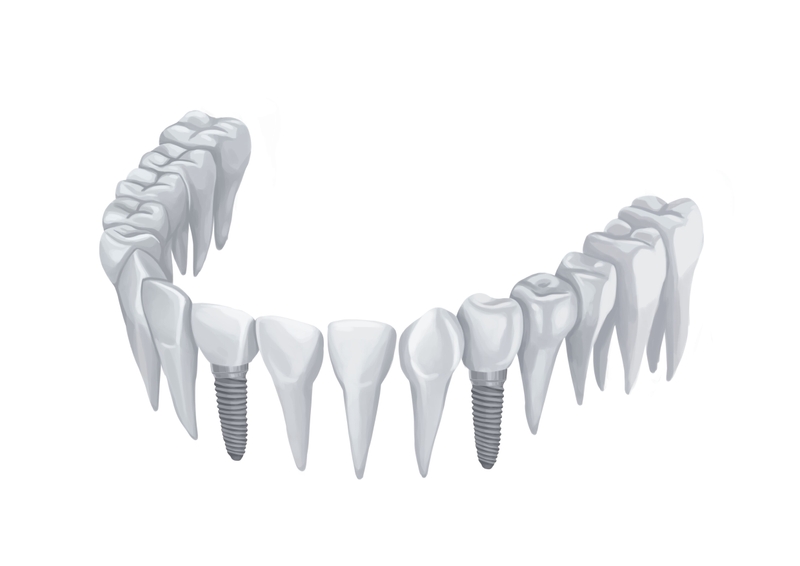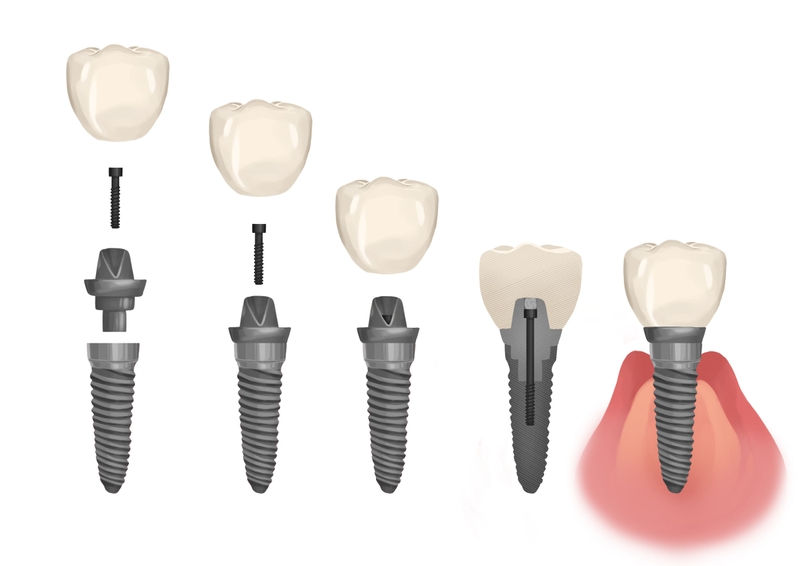- Oral surgeons are particularly specialized in implant surgery. They have extensive knowledge of the jawbone, nerves, arteries and veins.
- Periodontists specialize in treating gum disease, but can also place dental implants. Prosthodontists specialize in restoring missing teeth, which includes placing dental implants.
- Some general dentists can also place dental implants, but need the help of other specialists for more complicated cases.
Your future smile awaits. Use Authority Dental to book a dental implant specialist near you. It's easy, fast, and trustworthy.
Not sure which specialist to choose for dental implants? Here's everything you need to know.
Oral surgeon

Picture by Authority Dental under CC 2.0 license
Oral surgeons were some of the first to place dental implants. You may be familiar with these specialists because many people are referred to one to extract impacted third molars (wisdom teeth).
Oral surgeons have practices that are well-equipped to perform dental surgeries. They also have extensive knowledge about the jawbone, nerves, arteries, and veins - all of which must be taken into consideration when placing an implant.
If an oral surgeon performs your implant surgery, they will refer you back to your general dentist to fabricate the implant crown.
Periodontist
A periodontist is a dental provider who specializes in treating gum diseases. They can perform procedures needed to treat advanced stages of periodontal disease, which is a disease of the gum tissue that destroys the bone surrounding the teeth.
They can also place dental implants. A general dentist - even one who places implants themselves - might refer to a periodontist in cases where the gum disease must be treated first, or when the tissue’s appearance may compromise the final result of the implant.
For example, an anterior implant that replaces a front tooth will be visible if the gums around the implant are not healthy. However, a periodontist can place the implant and help the area heal in a way that is not noticeable.
Prosthodontist

Picture by Authority Dental under CC 2.0 license
Prosthodontists specialize in restoring missing teeth. They can place crowns, bridges, partial dentures, complete dentures, and of course, dental implants. Like oral surgeons and periodontists, prosthodontists have advanced training in their specialty.
Prosthodontists also specialize in the shape of your facial bones and jawbones. They can also treat temporomandibular joint (TMJ) problems and sleep apnea. Your general dentist might refer you to a prosthodontist if you currently have TMJ issues and need a dental implant.
General dentist
Dental implants are becoming a more common procedure performed by general and cosmetic dentists. General dentists do not have advanced training like other dental specialties. However, they must complete dental implant courses and place implants while under the observation of experts before they are allowed to place implants in private practice.
Many general dentists still refer to other specialists when they know a specific case may need more expert care.
Need an emergency dentist? We can schedule an urgent dental appointment in your city, 24 hours a day. Call us today.
FAQ
Who is best qualified to do dental implants?
As long as your dental provider has all of the certifications and training required to place a dental implant, they are qualified to perform the procedure. However, you may request a referral to a specialist even if your general dentist places implants.
What type of dentist should you visit first when considering dental implants?
Most patients speak to their general dentist when they first start considering a dental implant. This is because a general dentist can access your bone and tissue and then recommend which specialist would be best in your case.